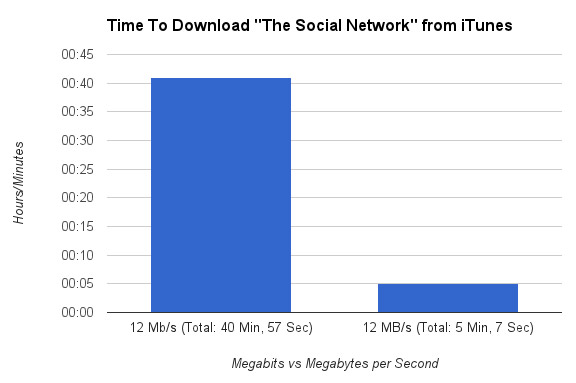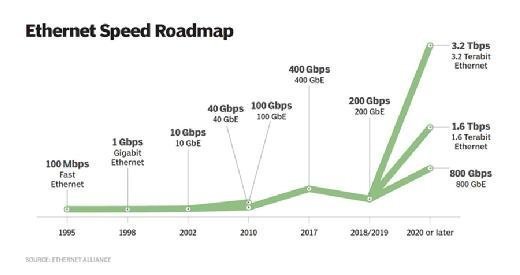Contrasting Internet Providers: Who Supplies the Best Megabits Per Second?
Contrasting Internet Providers: Who Supplies the Best Megabits Per Second?
Blog Article
Just How Megabits Per Second Impact Your Online Tasks
The principle of megabits per second (Mbps) plays a pivotal duty in shaping our on-line experiences. As digital tasks proliferate, understanding the ramifications of Mbps on video gaming, video clip, and streaming conferencing comes to be significantly important. Greater Mbps can boost performance and reduce disturbances, while inadequate speeds may cultivate stress and ineffectiveness. Assessing your house's specific requirements in connection with these speeds is necessary, specifically as several gadgets contend for bandwidth. The nuances of how Mbps affects various online tasks warrant further exploration, especially as our reliance on electronic connection proceeds to develop.
Recognizing Megabits Per Second
When considering net rate, it's vital to recognize the principle of megabits per second (Mbps), which works as a typical dimension for data transfer prices. This metric measures just how much data can be transferred over a web connection in one second, providing a clear understanding of performance abilities - Megabits Per Second. For context, one megabit amounts to one million bits, and Mbps is typically utilized to share transmission capacity for different online tasks
A greater Mbps shows a faster internet connection, making it possible for customers to execute jobs such as downloading files, searching web sites, and participating in online pc gaming much more efficiently. Normal browsing requires around 1-5 Mbps, while streaming high-def video clip may require 5-25 Mbps. Understanding these requirements is critical for determining the ideal internet speed required for certain activities.
In addition, the variety of tools connected to a network can influence total performance. Several individuals streaming, pc gaming, or downloading and install all at once can strain readily available transmission capacity, causing slower speeds - Megabits Per Second. Assessing individual online routines and requirements is important in choosing a net plan that straightens with one's needs, ensuring a smooth electronic experience
Streaming and Buffering Issues
Streaming high-def content has actually become a staple of modern on the internet enjoyment, yet it is commonly gone along with by annoying buffering issues. These disruptions can considerably diminish the checking out experience, causing frustration and prospective loss of target market engagement. Buffering occurs when the data transmitted from the streaming solution is not gotten rapidly sufficient to keep a smooth playback, typically due to inadequate net speed determined in megabits per second (Mbps)

Furthermore, real-time streaming can be affected by network blockage, which occurs when multiple gadgets share the very same data transfer. Maximizing link rate and making sure appropriate Mbps is crucial for a smooth streaming experience. As streaming services continue to advance, comprehending the impact of Mbps on buffering issues remains important for customers seeking continuous home entertainment.
Online Video Gaming Performance
The effect of net rate on online activities prolongs past streaming, considerably influencing online pc gaming efficiency. In affordable gaming, reduced latency and high data transfer are crucial for a smooth experience. A fast connection reduces lag, enabling players to react promptly to in-game occasions, which can be the difference in between triumph and defeat.
Transmission capacity, gauged in megabits per second (Mbps), plays a vital function in supporting numerous gadgets and pc gaming platforms simultaneously. Not enough data transfer can lead to went down links or decreased game top quality, negatively impacting gameplay. On-line multiplayer video games need considerable data transfer, particularly throughout peak video gaming hours when countless players are online.
Hectic first-person shooters demand greater speeds to keep responsiveness, while turn-based method games might operate reasonably well on lower rates. As online video gaming proceeds to advance, with boosting visual fidelity and more complex multiplayer atmospheres, the demand for higher Mbps will only increase.
Video Conferencing Top Quality
In today's digital landscape, video clip conferencing quality is heavily affected by internet rate, especially in regards to bandwidth and latency. High-grade video calls require sufficient transmission capacity to transmit audio and video clip information effortlessly. Commonly, a minimum of 1.5 Mbps upload and download speeds is advised for typical meaning video, while high-def video clip conferencing generally requires at the very least 3 Mbps.
Latency, or the delay in between see this here sending out and receiving data, additionally plays a vital role in the user experience. Reduced latency guarantees that discussions flow naturally without unpleasant stops briefly or interruptions. Preferably, latency needs to be listed below 150 nanoseconds for reliable interaction. Greater latency can lead to echo, lag, and disjointed communications, which can prevent cooperation and engagement during meetings.
Moreover, numerous participants in a video clip meeting can stress offered transmission capacity, requiring even greater rates. Network congestion, usually triggered by simultaneous activities like streaming or downloading, can better deteriorate video clip top quality. Therefore, for companies relying upon video conferencing for remote collaboration, understanding the relationship in between megabits per second and overall interaction high quality is important for maintaining performance and enhancing online communications.
Selecting the Right Internet Plan
Choosing an ideal internet plan is important for making certain ideal efficiency in numerous on the internet activities, particularly in settings that require high bandwidth, such as video conferencing and online pc gaming. Megabits Per Second. When thinking about a web strategy, it is important to review both the speed and information allowance to match your specific usage demands
For houses with multiple customers taking part in synchronised tasks, a strategy providing greater megabits per second (Mbps) is suggested. Usually, a minimum of 25 Mbps is suitable for typical streaming and surfing, while strategies exceeding 100 Mbps are more suitable for more intensive tasks. In addition, think about the nature of your online tasks; video conferencing requires at the very least 1.5 Mbps upload rate, while online video gaming may require a lower latency but regular link.
It is additionally vital to analyze your information cap. Limitless information plans can stop throttling and disturbances, specifically if heavy usage is anticipated. Lastly, research study provider in your area, as availability and rates can vary. By thoughtfully picking a web plan tailored to your requirements, you can web boost your online experience, making sure smooth, continuous access to your recommended tasks.
Verdict
In conclusion, the value of megabits per second (Mbps) in forming on-line activities can not be overstated. A complete understanding of private or household Mbps needs is essential for choosing a suitable net strategy that properly sustains varied online tasks and customer demands.

Generally, a minimum of 25 Mbps is ideal for conventional streaming and browsing, while plans surpassing 100 Mbps are more effective for more extensive tasks. Furthermore, consider the nature of your online tasks; video conferencing calls for at the very least 1.5 Mbps post rate, while on-line pc gaming may need a lower latency yet constant link.
Report this page